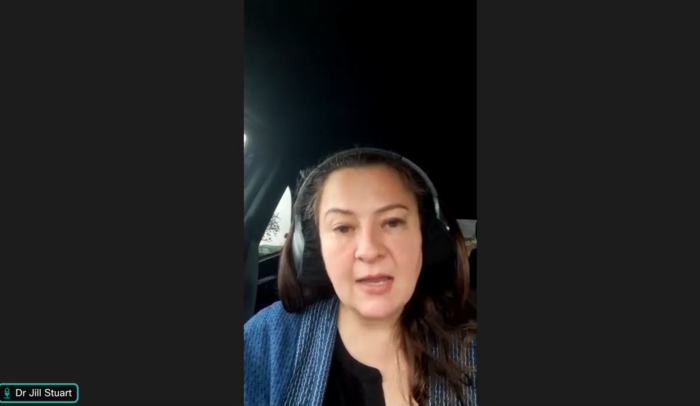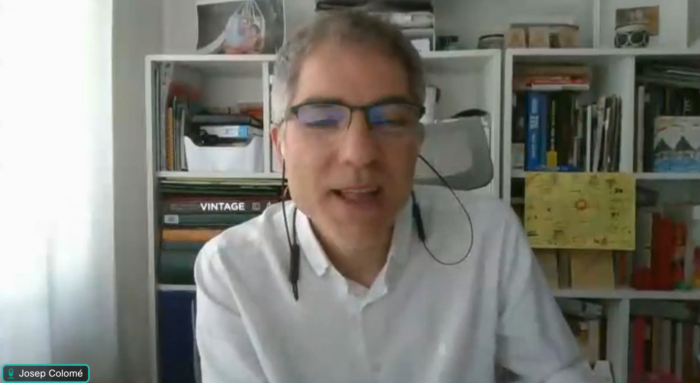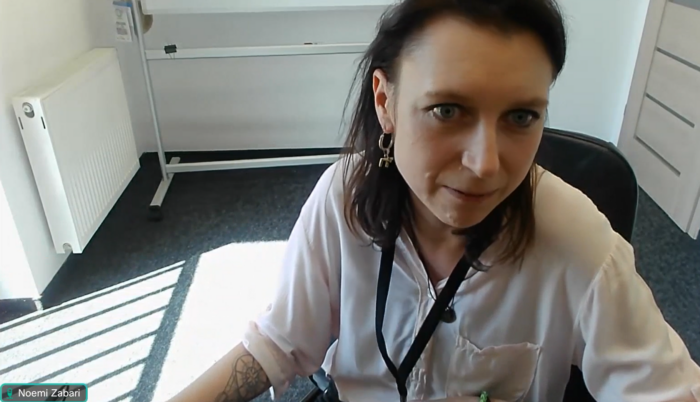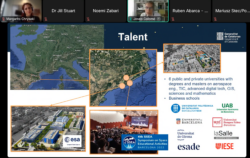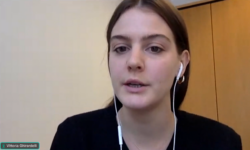The 11th webinar on Education and Training in the Space Sector explored how European space education reacts to the commercialization of space. We will delve into crucial inquiries, including adapting the curriculum, collaborating with industries, developing skills, and addressing ethical considerations. Margarita Chrysaki from NEREUS was the moderator of this webinar. The available presentation can be downloaded below.
Dr. Jill Stuart, an eminent academic from the London School of Economics and Political Science, offered an illuminating overview of UK space education and its response to the commercialization of space. Drawing from her expertise in space politics, ethics, and law, Dr. Stuart provided valuable insights into the adaptation of curriculum, industry collaborations, and addressing sustainability challenges or opportunities.
From the Catalonia Space Office at the Institute of Space Studies of Catalonia (IEEC), Dr. Josep Colomé shared Catalonia’s strategies for engaging with private entities in the space sector. He highlighted successful industry-academia partnerships, emphasizing the importance of ethical considerations within Catalonia’s regulatory frameworks. Additionally, Dr. Colomé discussed the evolving role of Catalonia within the broader European landscape of space education and industry.
Dr. Noemi Zabari, an astrophysicist and space entrepreneur, provided valuable perspectives from Poland’s space technology cluster and Astroteq.ai. She showcased Poland’s initiatives in space commercialization and highlighted the involvement of universities in fostering innovation. Dr. Zabari’s insights shed light on the dynamic intersection of scientific inquiry and business innovation in the Polish space sector.
During the interactive session, participants engaged in thought-provoking discussions, exploring various dimensions of space education and industry collaboration. Ms Vittoria Ghirardelli, A partner of the Veneto region (NEREUS Full member) introduced the “Veneto Stars” challenge, seeking groups of enthusiastic and skilled European innovators aged 18 – 25 with ideas to address challenges in Cultural Heritage and UNESCO sites using space data. Teams have the opportunity to submit their ideas from February 1st to April 15th, aiming for advancement to the next phase.
The discussions provided valuable insights into the evolving landscape of space education and industry collaboration. Participants gained a deeper understanding of the challenges and opportunities presented by the commercialization of space and the pivotal role of education in shaping the future workforce.
Watch here the full webinar here

